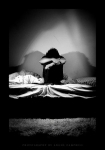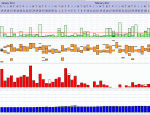Home sleep study???
Home sleep study???
Hi everyone! My partner is having / doing herself a home sleep study. This is what was ordered by the Dr. The company will send the equipment with a video on how to hook it up. One question I have is it doesn't include leg monitors. It also doesn't include a therapeutic portion. She will use the equipment one night send it back they will look at the data and send the results to the doctor. How are they going to determine what type of or what level her machine (if she needs one) will be? This is completely different from my experience, but I have different insurance. Has anyone had any experience with this and if you could share your experience?
Thanks,
katandmah
Thanks,
katandmah
Re: Home sleep study???
It is probably a screening with O2 sensors, maybe EEG sensors for sleep detection, pulse, EKG etc if no cpap machine and then maybe they do a home titration using an auto machine to find pressure or then go in for a formal sleep study titration. I have never had one but apparently they have come a long way. I think I read that even Medicare approves home study results. The leg sensors are for monitoring leg movement to see if there is excessive limb movement causing arousals.
_________________
| Machine: AirCurve™ 10 VAuto BiLevel Machine with HumidAir™ Heated Humidifier |
| Additional Comments: Mask Bleep Eclipse https://bleepsleep.com/the-eclipse/ |
I may have to RISE but I refuse to SHINE.
-
Cindy59
Re: Home sleep study???
MedOne Medical out of Sandy, Utah sends a shirt with sensors in it and a recording pulse-oximeter (sp?). The shirt sensors record chest (breathing) movements. Coupled with the results from the pulse. Another home study supplier sent a recording pulse-oximeter and a recorder with a nose cannula attached (like you see people on oxygen use) This recorded breath movement and was compared to the pulse-oximeter. The results from these two suppliers convinced my Sleep Dr that the sleep lab I had was not accurate... in my case. Other people here have had good results with sleeps labs.
Hope this info helps you...Good luck.
Cindy
Hope this info helps you...Good luck.
Cindy
- Lizistired
- Posts: 2835
- Joined: Tue Dec 14, 2010 10:47 pm
- Location: Indiana
Re: Home sleep study???
Well thanks Lazlo, I think I'll just bump my pressure up from 8cm to 16 cuz you said so.Lazlo wrote:Actually there have been a lot of studies done on this and I can recommend a pressure setting of 16cm. Studies done at Cambridge and Duke have confirmed that statistically speaking, CPAP is most effective on 16cm. I don't see why your friend's doctor is having her do a sleep study at all however. ER Doctors all over the country assign CPAP devices to patients with out a sleep study. Even if she does not have Obstructive Sleep Apnea, the device is not harmful in any way.
-Lazlo
_________________
| Humidifier: S9™ Series H5i™ Heated Humidifier with Climate Control |
| Additional Comments: Swift FX sometimes, CMS-50F, Cervical collar sometimes, White noise, Zeo... I'm not well, but I'm better. |
ResScan: http://www.resmed.com/int/assets/html/s ... c=patients
ResScan Tutorial- http://montfordhouse.com/cpap/resscan_tutorial/
Machines Video: http://www.cpaplibrary.com/machine-education
ResScan Tutorial- http://montfordhouse.com/cpap/resscan_tutorial/
Machines Video: http://www.cpaplibrary.com/machine-education
Re: Home sleep study???
"There are three kinds of lies: lies, damned lies and statistics." (Mark Twain)Lazlo wrote:You can not argue with statistics.Lizistired wrote:Well thanks Lazlo, I think I'll just bump my pressure up from 8cm to 16 cuz you said so.Lazlo wrote:Actually there have been a lot of studies done on this and I can recommend a pressure setting of 16cm. Studies done at Cambridge and Duke have confirmed that statistically speaking, CPAP is most effective on 16cm. I don't see why your friend's doctor is having her do a sleep study at all however. ER Doctors all over the country assign CPAP devices to patients with out a sleep study. Even if she does not have Obstructive Sleep Apnea, the device is not harmful in any way.
-Lazlo
Statistics work well when talking about the aggregate population. But in every population there are outliers. And when one is an outlier, all the stats in the world don't help you one iota.
And, at least for the US CPAPer population, your stats are wrong: The pressures here seem to fall into a rough bell shaped curve with the middle at around 10cm. And if a sleep doc is forced to "guess" at a pressure, the starting guesstimate is likely to be 10cm give or take a cm or two. A setting of 16cm is considered quite high on this side of the pond. Indeed, it is high enough where many sleep labs and sleep docs start to consider a bi-level as being necessary for patient compliance and comfort: Too many folks starting off at that fixed pressure cannot exhale comfortably, mask leaks are more prevalent and can be more difficult for a newbie to fix, and aerophagia is both common and distressingly uncomfortable. And all these problems lead to a far increased risk of the patient simply giving up on xPAP altogether and just living with the untreated OSA.
But more disturbing is the fact that a certain percentage of folks with OSA develop so-called emergent central apneas in large numbers once the pressure level is increased above 10cm. Certainly not most OSA patients, but I believe it's estimated that about 1 in 10 do. And for these folks, randomly increasing pressure that high can very well be dangerous even though for most of us, increasing pressure to that level is merely very uncomfortable instead of being dangerous.
_________________
| Machine: DreamStation BiPAP® Auto Machine |
| Mask: Swift™ FX Nasal Pillow CPAP Mask with Headgear |
| Additional Comments: PR System DreamStation and Humidifier. Max IPAP = 9, Min EPAP=4, Rise time setting = 3, minPS = 3, maxPS=5 |
Re: Home sleep study???
Lazlo's opinion on this differs from the opinion of most of the medical community, and, I trust, the opinion of most of the users of this board.
Note that he just registered today and has already posted 6 times.
Note that he just registered today and has already posted 6 times.
_________________
| Mask: Swift™ FX Nasal Pillow CPAP Mask with Headgear |
| Humidifier: S9™ Series H5i™ Heated Humidifier with Climate Control |
| Additional Comments: Also SleepyHead, PRS1 Auto, Respironics Auto M series, Legacy Auto, and Legacy Plus |
Please enter your equipment in your profile so we can help you.
Click here for information on the most common alternative to CPAP.
If it's midnight and a DME tells you it's dark outside, go and check for yourself.
Useful Links.
Click here for information on the most common alternative to CPAP.
If it's midnight and a DME tells you it's dark outside, go and check for yourself.
Useful Links.
Re: Home sleep study???
By the way, not only is Lazlo wrong in general, your insurance is not probably not going to pay for the CPAP without a sleep study.
Warning: Do not feed the troll.
Warning: Do not feed the troll.
_________________
| Mask: Swift™ FX Nasal Pillow CPAP Mask with Headgear |
| Humidifier: S9™ Series H5i™ Heated Humidifier with Climate Control |
| Additional Comments: Also SleepyHead, PRS1 Auto, Respironics Auto M series, Legacy Auto, and Legacy Plus |
Please enter your equipment in your profile so we can help you.
Click here for information on the most common alternative to CPAP.
If it's midnight and a DME tells you it's dark outside, go and check for yourself.
Useful Links.
Click here for information on the most common alternative to CPAP.
If it's midnight and a DME tells you it's dark outside, go and check for yourself.
Useful Links.
Re: Home sleep study???
Home sleep study systems have indeed come a long way. They range from dozen-channel systems that record almost everything a sleep lab would to fairly simple devices such as the Respironics RUSleeping RTS Screener, which can be purchased for $659 through Amazon.com. This tiny device has one sensor, a nasal cannula, and records and computes the AHI, which it displays on its LCD screen--i.e., no hookup to computer, no memory card, no software, no fuss.
As Respironics explains:
"The unit gets clipped to the patient's garment, or positioned on the bed or pillow. The patient attaches the nasal cannula and installs the battery in the unit. Respiratory airflow pressure at the nose is sensed via the cannula and the device starts to record apneic events. When breathing decreases 50 percent or more for 10 seconds or longer, it is considered an apneic event and is recorded on the LCD readout."
"Upon awakening, the total nightly apneic events are displayed. The patient presses a button to see the average hourly apneic events. Pressing the button again displays the number of events by hour. The patient reviews the scores and mails or calls in the information. It's that simple. There is no additional software or interpretation needed. The device can be worn repeatedly to validate the first night's readings. If you are satisfied with the results, have the patient mail back the device."
As Respironics explains:
"The unit gets clipped to the patient's garment, or positioned on the bed or pillow. The patient attaches the nasal cannula and installs the battery in the unit. Respiratory airflow pressure at the nose is sensed via the cannula and the device starts to record apneic events. When breathing decreases 50 percent or more for 10 seconds or longer, it is considered an apneic event and is recorded on the LCD readout."
"Upon awakening, the total nightly apneic events are displayed. The patient presses a button to see the average hourly apneic events. Pressing the button again displays the number of events by hour. The patient reviews the scores and mails or calls in the information. It's that simple. There is no additional software or interpretation needed. The device can be worn repeatedly to validate the first night's readings. If you are satisfied with the results, have the patient mail back the device."
Re: Home sleep study???
Lazlo, I'm not up for a lit search this morning, there's the big antique's show fête at the NYC armory, only 2 days left, and I am determined to max out my CCs!Lazlo wrote:Actually there have been a lot of studies done on this . . .-Lazlo
http://www.winterantiquesshow.com/information/
Sooo, if you could simply cite the three best studies that support your position, then the three best studies that contradict your position, it would be duly appreciated.
roc
Re: Home sleep study???
Wow, after a quick shower, I feel like a new man!
roc
aka Mike6977
aka rocklin, my nic on the net since I began.
roc
aka Mike6977
aka rocklin, my nic on the net since I began.
Last edited by rocklin on Sun Sep 25, 2011 11:48 pm, edited 1 time in total.
.
It is easy to be brave from a safe distance - Aesop
.
It is easy to be brave from a safe distance - Aesop
.
Re: Home sleep study???
Hi Kat,
I had a home sleep study. The equipment varies and is improving. In my study, I had a chest strap to measure repiratory effort, a nasal cannula which measured breathing, oximetry that measured my blood oxygen level. ..and truthfully I don't really know what else it measured. Oh, it has a microphone to detect snoring too.
But with the above, you can diagnose OSA VS central apnea. If it's OSA, then like Pugsy said, they use an Auto-pap machine which will determine what pressures ypu need.
If the situation is more complex, or the test was unclear...then a regular sleep study will usually be ordered, That's how things are dome with my Doctor.
The leg movement issue won't be measured I don't believe.
Hope it goes well,
Jamis
I had a home sleep study. The equipment varies and is improving. In my study, I had a chest strap to measure repiratory effort, a nasal cannula which measured breathing, oximetry that measured my blood oxygen level. ..and truthfully I don't really know what else it measured. Oh, it has a microphone to detect snoring too.
But with the above, you can diagnose OSA VS central apnea. If it's OSA, then like Pugsy said, they use an Auto-pap machine which will determine what pressures ypu need.
If the situation is more complex, or the test was unclear...then a regular sleep study will usually be ordered, That's how things are dome with my Doctor.
The leg movement issue won't be measured I don't believe.
Hope it goes well,
Jamis
Last edited by jamiswolf on Sat Sep 24, 2011 7:47 am, edited 1 time in total.
Re: Home sleep study???
When a home sleep study is what the insurance company will pay for, I say make the best of the situation. As we have read from posters personal experiences they can be very effective. I agree that being given an AUTO machine for a length of time to determine the pressure needed might be done for titration. Good luck to your partner. Please keep us posted how how they do and how the doc manages the titration. Your partner is lucky that you are receptive, supportive, and asking questions. If CPAP is indicated the support of a partner in a necessity for success.
_________________
| Mask: Wisp Nasal CPAP Mask with Headgear - Fit Pack |
| Additional Comments: PR System One Remstar BiPap Auto AS Advanced. |
Dog is my copilot
-
Guest
Re: Home sleep study???
Thank you to all who answered! Your knowledge is invaluable. I will keep the forum updated on how the sleep study goes and how they will determine things. As an aside and a little chuckle, I had to order new tubing as our recently acquired kitten decided it would be a fun toy!!! At least I was due to order new supplies, so I didnt have to pay out of pocket!
Re: Home sleep study???
There are pros and cons. I've had five in hospital studies. All but the last were very awful -- I hardly slept at all. In the last I slept for almost 8 hours, but in all cases I felt like I needed a week to recover. I've had 3 in home studies. The last two were with a cute gadget called the Medibyte Jr. The advantage of a home study (besides cost) is that you're in your own bed and your sleep is less disrupted by a foreign atmosphere, and having wires connected to you all over the place.


















